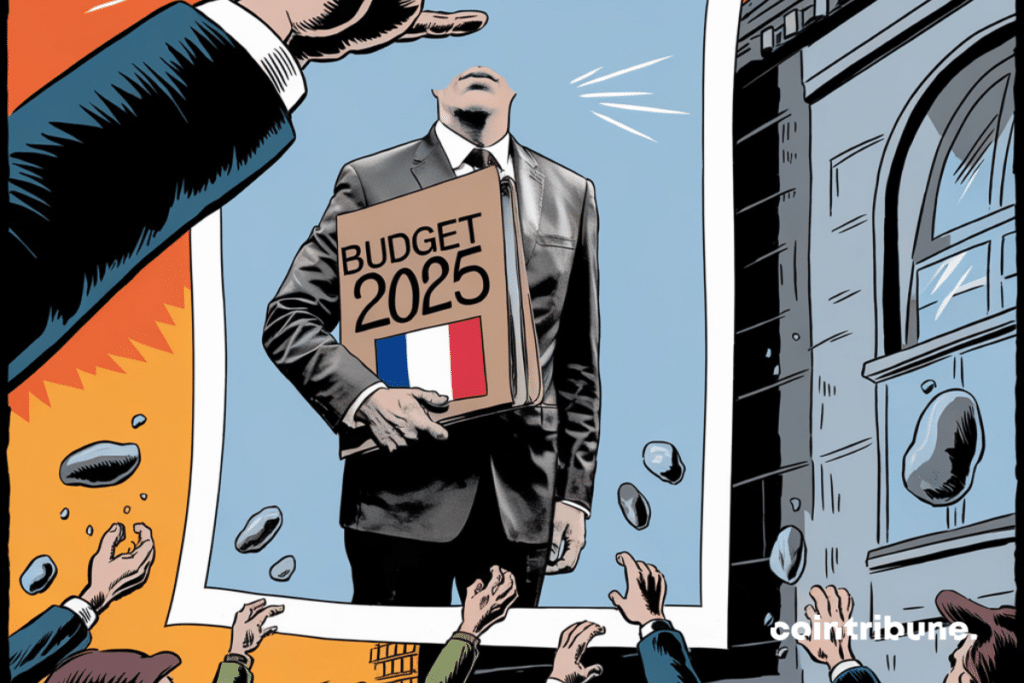4000 postes en moins dans l'Éducation. Après avoir propagé la misère, voici l'organisation de l'ignorance. Ce budget est une calamité.
— Jean-Luc Mélenchon (@JLMelenchon) October 10, 2024
A
A
Finance: Michel Barnier Tightens The Screws With The 2025 Budget
Fri 11 Oct 2024 ▪
5
min read ▪ by
Getting informed
▪
Event
France surely did not expect Michel Barnier to play the miser-in-chief. And yet, with budget cuts and tax increases, the former European negotiator is working on cutting all possible expenses. The result? Grumblings are heard on all sides. The drastic cuts, especially in national education and pensions, are raising opposition as one, denouncing this “social war budget.”

Budget 2025: A budget cut that causes a storm
Michel Barnier, whose appointment sent French banks soaring in early September, struck hard with his 2025 Finance Bill (PLF). With a target of 60 billion euros in savings, the budget is praised by the government as an inevitable austerity measure, but viewed by the opposition as a real “massacre”.
Jean-Luc Mélenchon, leader of the Insoumis, denounces the removal of 4,000 positions in national education as a “calamity.” Aurélien le Coq goes even further by mentioning a “social war budget.” For Éric Coquerel, president of the finance committee, the situation is bleak for the middle and lower classes.
The opposition is outraged, but the government remains inflexible, justifying these cuts by the need to curb a swelling debt – with France being among the top 10 most indebted countries in the world. Among the key measures are a revision of the pension calendar, and a new taxation of the wealthiest households. What makes even more teeth grind is the perceived unequal distribution of this effort.
Some deputies, notably Jean-Philippe Tanguy of the National Rally, cry injustice, pointing to a disproportionate contribution from working-class people.
The key points of the 2025 budget:
- Elimination of 4,000 positions in national education;
- Retirement revaluation postponed by six months;
- New taxes for wealthy households (65,000 households targeted);
- Exceptional contribution from companies with high profits;
- New taxes on airline tickets.
Public finance: Barnier imposes his law on taxes and businesses
Under the pressure of a colossal debt – the critical threshold being reached at 3,228 billion €, Michel Barnier did not hesitate to bring out the heavy artillery to replenish the State’s coffers. Between new taxes for the wealthiest households and additional taxes for large companies, the 2025 Finance Bill particularly targets those who own the most. But what does it mean to be rich in France in 2024?
Top of the list, a special contribution is required from 65,000 tax households whose income exceeds 250,000 euros for a single person and 500,000 euros for a couple. This levy, temporary over three years, will allow the raising of several billion to stabilize the country’s financial situation.

But it’s not only households that bear the brunt. Companies with a turnover of over 1 billion euros will also be taxed. The government hopes to raise 12 billion euros over two years by taxing these companies at 20.6% to 41.2% of their corporate tax.
In parallel, fiscal adjustments, like a revision of the income tax scale, are supposed to protect modest households from new tax increases, although many fear this won’t be enough to offset the overall impacts of the budget.
On the parliamentary side, the battle promises to be tough. While the majority remains ready to defend this budget, arguing that it’s essential to stabilize France’s economic trajectory, the opposition has not said its last word. The recourse to the famous article 49.3 could well be the government’s trump card to force the adoption of this hot text.
Thus, to avoid a major crisis, the goal remains clear: 150 billion in savings by the end of the period. Otherwise, a crisis seems inevitable in France. In other words, the nightmare is just beginning.
Maximize your Cointribune experience with our "Read to Earn" program! For every article you read, earn points and access exclusive rewards. Sign up now and start earning benefits.
A
A
La révolution blockchain et crypto est en marche ! Et le jour où les impacts se feront ressentir sur l’économie la plus vulnérable de ce Monde, contre toute espérance, je dirai que j’y étais pour quelque chose
DISCLAIMER
The views, thoughts, and opinions expressed in this article belong solely to the author, and should not be taken as investment advice. Do your own research before taking any investment decisions.